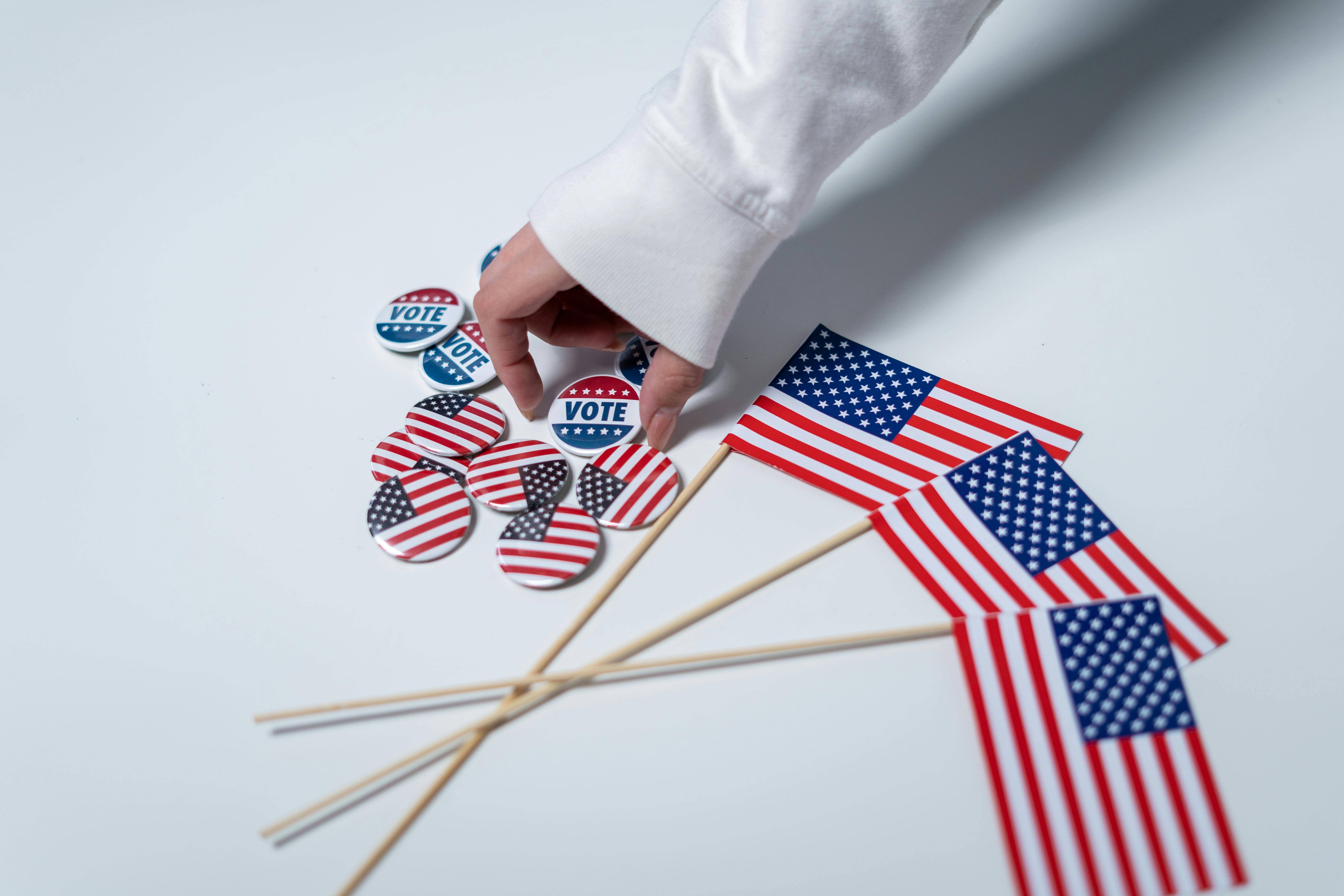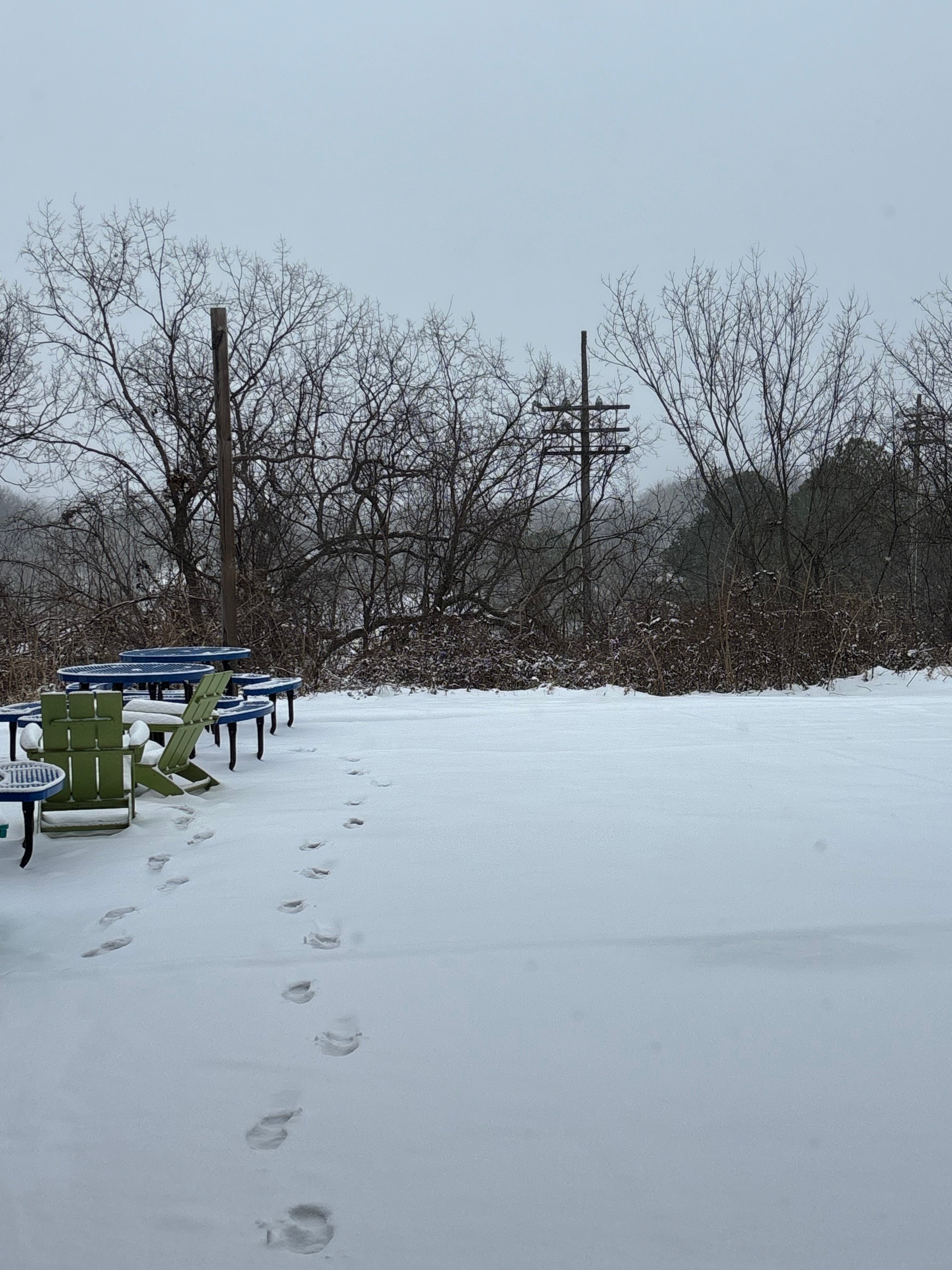As the 2024 presidential election looms less than a week away, the nation finds itself at a political crossroads. With candidates current Vice President Kamala Harris and former President Donald Trump in a fierce battle for the presidency, students at John Brown University are watching closely to see where the candidates stand on issues that matter most to them. For many, this election will be their first chance to vote, and their decisions could help shape the future of the country. But what are the key issues driving their opinions, and where do they stand in this contentious race?
In an attempt to garner as many votes as possible, both candidates have been using a variety of tactics over the past few months, such as Harris branding her campaign after the Charli XCX album “Brat” and Trump conducting a photo op while manning the French fry station at McDonald’s. Although these striking actions are indicative of a campaign season characterized by dedicated attempts to appeal to every potential voter, their success may ultimately be determined by their policies.
Although Trump and Harris are the main contenders, several third-party and independent candidates are also in the race. Green Party candidate Jill Stein has garnered the most support among them, while independent candidate Robert F. Kennedy Jr., who was polling at 4.6%, recently withdrew from the race., though his name still appears in some state’s ballots These alternative candidates could potentially sway the outcome, appealing to voters dissatisfied with the major party options.
According to a recent poll by TIPP Tracking, Harris and Trump are deadlocked nationally, polling at 48% each. With tight polling in seven critical battleground states, the race remains highly unpredictable, as how these states swing could determine the outcome. In a recent study by Pew Research Center, voters across the political spectrum expressed shared concerns over the economy. Trump supporters cited immigration, violent crime and foreign policy as top issues, while Harris supporters emphasized healthcare, Supreme Court appointments, abortion and the economy as significant factors in their vote.
Both candidates have laid out distinct policy approaches to these issues throughout their campaigns. Harris has focused on supporting middle-class Americans through increased taxes on high earners and large corporations, paired with expanded child tax credits. Trump, meanwhile, has proposed a range of tax cuts aimed at boosting economic growth and expanded child tax credits, which he doubled while in office.
On immigration, Harris has highlighted her efforts to reduce migration by addressing its root causes and securing private investments for regional stability. She now stresses a tougher stance on border security, drawing on her record as a prosecutor against human trafficking, though her campaign website does not list specific immigration policies. Trump’s approach centers on stricter enforcement, including mass deportations and expanding the border wall. Their foreign policy stances also diverge, with Harris has pledged long-term support for Ukraine and aims to ensure the U.S., rather than China, leads in global influence throughout the 21st century. She also supports a two-state solution for Israel and Palestine and has called for an end to the conflict in Gaza. Meanwhile, Trump’s foreign policy emphasizes isolationism, with promises to disentangle the U.S. from overseas conflicts
Their stances on abortion highlight yet another important distinction. Harris has made abortion rights a cornerstone of her campaign, seeking to enshrine nationwide protections. Trump's views on abortion have been less consistent, although his nominations to the Supreme Court helped to overturn Roe v. Wade and leaving each state to decide abortion legislation for itself. Climate policy further highlights their divide, with Harris endorsing renewable energy investments, while Trump advocates for Arctic drilling and relaxed environmental protections.
With these national issues at the forefront, JBU students are reflecting on how policies around key topics could shape their futures, highlighting the issues they find most pressing in this election.
“As far as the most important issues to me in this election, I would say the economy and immigration,” junior political science major Kate Gunter said. “The economy is important to me because, as a college student, I already feel the effects of inflation—whether in buying gas or groceries, just in those everyday things. I’m concerned about the future because I know I’ll feel those effects more after I graduate, especially if I go to graduate school, with more debt and living expenses.”
Gunter also explained why immigration matters to her.
“I’m so thankful for people in my life who immigrated here, and I want others like them to have the same opportunity. Beyond personal examples, it’s hard to see people suffer in other countries and think, ‘Why can’t they come here for a better chance?’ I also understand that national security is a real concern, and we need to make sure we’re protecting our country so it remains a good place to come to. I don’t know the right answer, but I do know we need reform—one that approaches immigration with compassion and a focus on justice and human flourishing,” Gunter said.
Sophomore economics major Katie Kizziar echoed concerns about economic policy, emphasizing the importance of sustainable spending.
“For me, the main issue is what each candidate plans on spending money on, where that money is coming from, and how that will affect the national debt,” Kizziar said. “With Trump, I care about the tariffs he wants to implement and how much that’s going to cost our economy, and what impact it will have on jobs. And with Kamala, I care about the programs she’s funding and whether they’ll be sustainable long-term.”
For some JBU students, faith and politics intersect closely, influencing their stances on key issues. Sophomore art and illustration major Lindsey Harris mentioned the importance of considering her beliefs when making political decisions.
“Abortion is generally a key issue that I will always look at, usually considering it from a point of view of morality,” Lindsey Harris said. “I think, does this align with my beliefs? Is this something I want to vote for?”
Junior political science major Ethan Martin, who serves as president of JBU’s Pre-Law Club and vice president of Model United Nations, highlighted the high stakes of this election, both nationally and globally.
“This is an incredibly important election—one that could reshape the century,” Martin said. “The United States is currently the richest and most powerful country in the world, with the strongest military and the world’s reserve currency, which means everyone uses our dollar. This, in turn, makes the U.S. wealthier.”
Martin emphasized that the election’s impact would be significant on both domestic and global fronts, depending on which administration takes office.
“Domestically, voting for Harris would mean a continuation of President Biden’s policies, while Trump would bring lower taxes and a focus on public infrastructure,” Martin said.
Martin added that globally both administrations would have to address major issues.
“We’re likely to see rising tensions, whether between NATO and BRICS countries, immigration and identity crises in Europe and Africa, or the broader tension between globalism and isolationism,” Martin said.
JBU’s campus is also known for the diversity of its campus, with 42 different countries being represented within its student body. International students, though not able to have direct input in the election, will be affected by the outcomes of it. Sophomore art and illustration student Youl-ah Kim commented on the interesting position international students have in this election.
“I kind of feel like an outsider in this election,” Kim said. “I can’t vote, I can’t make a decision as to what happens to the country—I can’t do anything about it. And yet whatever happens, I know I will be affected by it—whether it be the economy, or immigration laws—and I will have to adapt to it.”
Back on campus, JBU students are engaging in these national and international issues in a variety of ways. The Center for Faith and Flourishing, led by political science professor Dr. Daniel Bennett, has organized multiple events encouraging students to discuss and reflect on the political landscape, especially as the election draws closer. For instance, on Sept. 5, students gathered for the annual “Reimagining Faith and Public Life” event, where JBU faculty shared how they navigate the intersections of faith, political beliefs, and public life.
Furthermore, on Oct. 22 the “Voices of Tomorrow” panel was held in which students Emma Jit, Blake Albright, Yamil Tenorio and Kyla Whitaker were allowed to discuss the diversity of political perspectives that exist within the campus.
“I think there’s pretty good representation on both sides on campus,” Kizziar said. “I think JBU has a tendency to lean conservative, but it’s not employed in a toxic way—it’s usually pretty open-minded and fair. I think there’s a good expression of people and discussion between ideas, and it’s not bad that we’re able to discuss this openly.”
Gunter also commented on the open discussion of political issues on campus, stating that though JBU does a good job of offering opportunities for engaging in such discussions, it would be beneficial if a less polarized approach in regards to issues of importance, such as abortion or immigration laws.
“If instead of just constantly harping on those issues, why don’t we talk more about how we can decrease polarization in our political system and our modern culture? I would like to see more people talking about that. A ton of people say ‘I don’t like politics because it’s so polarized.’ Well, we are the ones who make it polarized. Let’s talk about how we can change that,” Gunter said.
Kizziar and Gunter both emphasized the importance of making informed votes, particularly in their roles as students.
“We’re a voice that matters,” Kizziar said. “For many students, this is our first year participating in an election. If we believe our votes don’t matter, it reflects poorly on our generation's commitment to civic duty, allowing those who don’t represent our needs to take office.”
Gunter reinforced this sentiment.
“When we don’t vote, when we don’t make intentional decisions, we are still making a choice—one that lacks wisdom and care. It’s crucial that we take an active role. Instead of letting our circumstances shape us, we should actively shape them,” Gunter said.
The 2024 U.S. presidential election will be held on Tuesday, Nov 5. Polling hours vary by state; voters should check their local election offices for specific times and locations. Siloam Springs residents can find more information about voting on the city’s website.
Photo Courtesy of cottonbro studio in Pexels

Celeste Masis
Celeste is a student at John Brown University.





